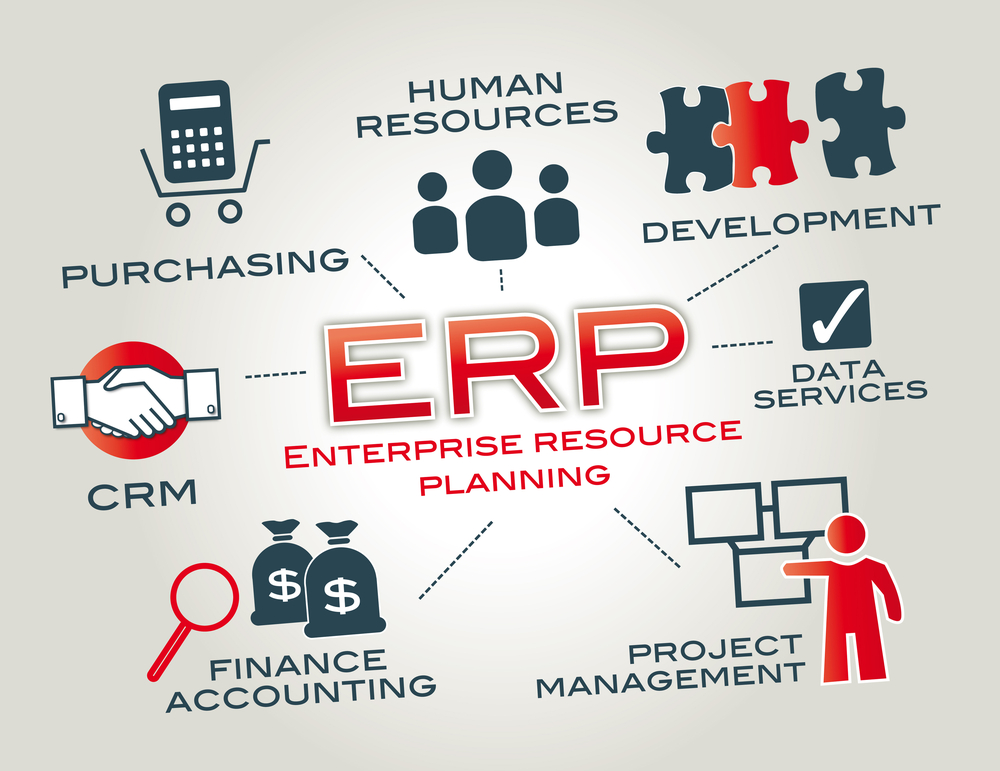Top 6 Failures of ERP Implementations
A right ERP (Enterprise Resource Planning) system act as a backbone of a company. If it’s integrated accurately, then it provides exceptional input to the management. With efficient input, you can easily understand the working status of your employees, relationship with customers and suppliers. It assists the company’s management to respond effectively, by coordinating resources to get more customers, battle with competitors and decrease the cost. So if you want your business to grow then implementing an ERP system is the right choice.
What is ERP?
It is the primary sales-to-cash, reporting, accounting, compliance, supply chain, human resources, sales and customer IT systems that companies need every day.
On the other side, it is a matter of fact that most of the companies get negative results when it comes to upgrading or implementing ERP systems. It happens as huge systems are filled with several complexities. Such solutions have become the significant aspect of every company; therefore, whether it’s about integrating a new system or upgrading the old one, companies do fall for numerous failures during implementations. We will now discuss some of the most popular failures regarding ERP Implementing:
-
Initial Failures
Most of the implementations projects fail before even getting started. It is not the right way to implement a broad ERP into your company if you found an issue in reporting, efficiency or integration process. People lead themselves towards an expensive and risky Implementing rather than focusing on their current system upgrading, or a small add-on application like to get a better reporting system and employee portal would be beneficial. Upgrading existing software is usually less affordable as compared to another software installation.
-
Less Focus on Results
It is the most important factor to have a complete focus on outcomes. Lack of focus on the problems being solved, the specific financial justification or findings of a project leads to several challenges later controlling the capacity and maintaining executive support. If you have a clear view of the outcomes, you can make sure that your partners about benefits. Without a compelling definition of success, the endpoint can become a moving target.
-
Well Oriented Plan
It is the crucial factor in any business success. A detailed plan is essential for a successful implementation. Some of the companies do not make a strong, detailed plan and in results, they face failures. For an exceptional reward, it is vital to building a high-level plan with underestimating the amount and broad assumptions of the business change involved. Despite how obvious this sounds, it remains the most common mistake companies make.
-
Inexperienced Project Management
A person who has less experience in dealing with such type of projects might lead your business to severe fall downs. Therefore, it is always better to get the assistance of a professional project manager who has experience in such type of fulfilments.
-
Under-estimating resources
It is the most common blunder that happens with resources projected. Having a strong understanding of both external and internal resources needed to complete a project is tough. For the internal resources, understanding the time required from business users, in the Finance, Human Resources or Accounting departments is commonly the most underestimated areas.
During difficult project phases, it is necessary to backfill the transactional employee’s majority by bringing in the temporary resources. It frees up the users of the new system, so they get time for training and implementation and training. For the external resources, having an agreement up-front with contractors and consultants about specific duration, quantity, skills of resources needed is crucial.
-
Customization
This the most critical aspect of such type of implementation, as it can make it or break it. Several companies believe that customizing their ERP system adds cost, time and risks to a project. In fact, the customizations, along with data conversion and interfaces, are the core aspects of technical risk. Despite customization cost and risks, most companies find it difficult to control their project scope by turning down customization, as it always starts out small but grows in a way to become the technical challenges which can derail projects.
Some of the ERP implementations have no customizations but take a firm line on justifying the smallest ones as well as manage them tightly.
Read Also: Odoo Hotel Management
Conclusion
Doing an ERP integration into your company is like you are doing a brain surgery as it is that much critical and important. So, whenever you think about taking this step, you should have a good reason to do it so. On the other side, there are also so many failures that your business might face. Hence, to make sure you get beneficial results.

